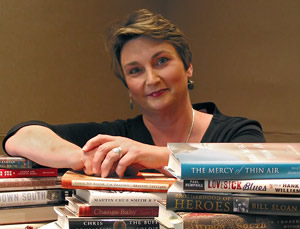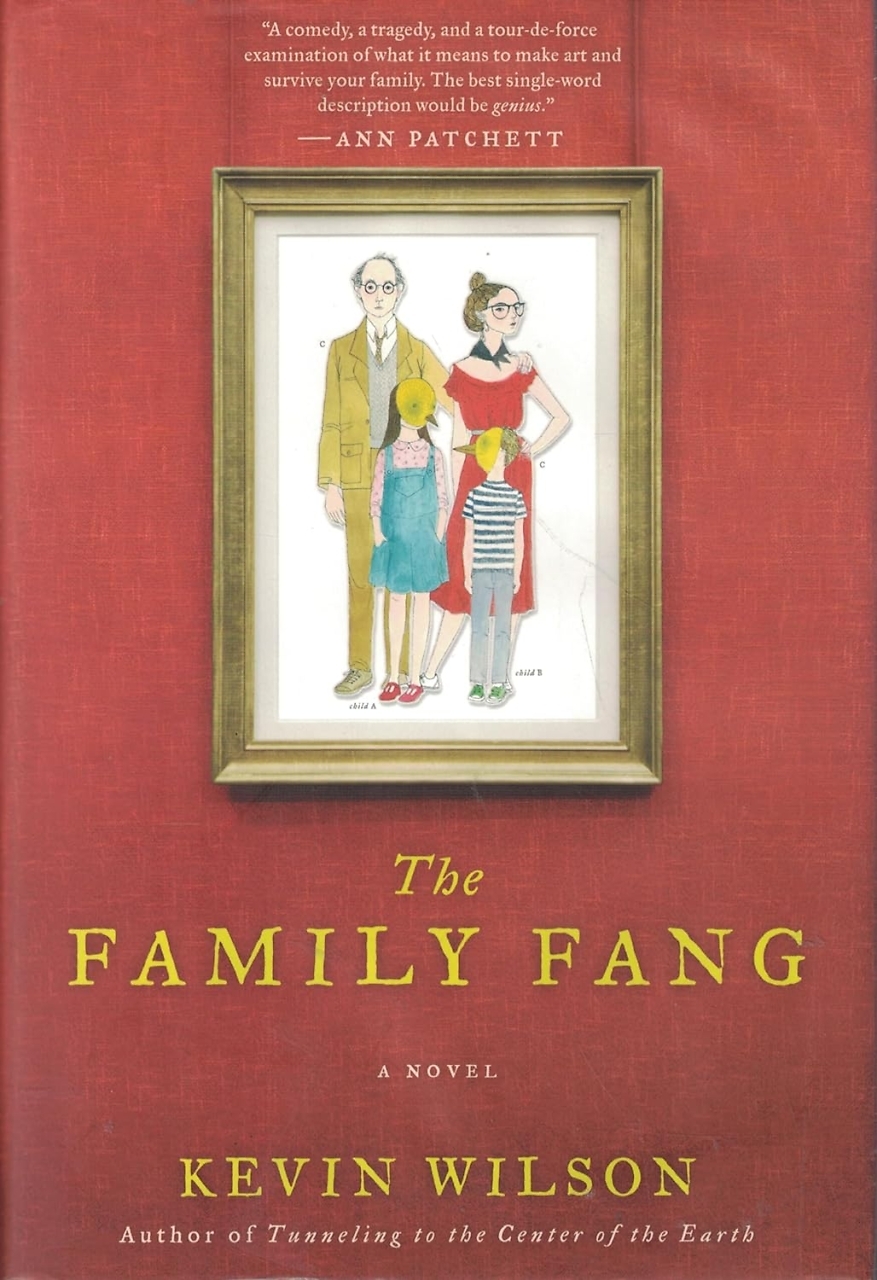Remembering Rebecca
Rebecca Bain’s death is a deep loss to the Nashville literary community, as Humanities Tennessee’s Serenity Gerbman knows all too well
Rebecca Bain’s voice was with us in intimate spaces: inside our cars, around our kitchen tables, coming from the clock radio beside the bed in the morning. Hers was the cheerfully cajoling voice that led the radio pledge drive, that shared the morning news, and that delighted in announcing a new literary discovery.
 During Rebecca’s thirty years at WPLN, Nashville’s public-radio station, hers was perhaps the most familiar voice in the city. As the station’s website noted in reporting her death on October 15, “there were few positions on air that Rebecca Bain didn’t fill at some point. She played classical music and reported the news, but she was best known for talking to authors.” During her years of hosting “The Fine Print,” a weekly author-interview program, Rebecca “always went into author interviews having read the entire book, cover to cover,” her colleagues at WPLN recall. “No summaries, no skimming.”
During Rebecca’s thirty years at WPLN, Nashville’s public-radio station, hers was perhaps the most familiar voice in the city. As the station’s website noted in reporting her death on October 15, “there were few positions on air that Rebecca Bain didn’t fill at some point. She played classical music and reported the news, but she was best known for talking to authors.” During her years of hosting “The Fine Print,” a weekly author-interview program, Rebecca “always went into author interviews having read the entire book, cover to cover,” her colleagues at WPLN recall. “No summaries, no skimming.”
I was lucky to get to know Rebecca through my work as a program officer and then director of the Southern Festival of Books. Every year she would spend Festival weekend locked in her studio with all the authors who had lined up, waiting for the full Rebecca treatment. She knew books and loved them, and she was fascinated by the people who wrote them. When an author was booked on Rebecca’s show, he knew that she had read the book, written the questions, and prepared the ground for a meaningful conversation.
“The Fine Print” went off the air in 2006, but book publicists still ask me about Rebecca, wondering if her show would ever return to the air. Five years qualifies as an eon in twenty-first-century publicity, and these questions are a powerful testament to Rebecca’s talents and her reputation. Had “The Fine Print” been recorded during the age of the podcast, we might all now be downloading our favorite shows, listening again to the hundreds of interviews she conducted through the years. In this age of instant gratification, it seems absurd and antiquated that her voice, her whole career, exists somewhere in recordings inaccessible to us.
Many people may not know that just a year ago Rebecca launched a second career: after completing a master’s degree in her fifties, she was following a lifelong desire to be a high-school teacher. During her first few weeks in the classroom, Rebecca sent long emails to her friends, detailing with great humor and self-deprecation the collision of her ideals and the realities of the public-school system. In her second week in the classroom, she told this story:
I am beginning to understand my shortcomings and limitations. Yes, some of them will never appreciate the deliciousness of a word, or a phrase … but some who didn’t think they would will. That may be how I measure my success. Actually, I can already measure my success that way. All six of my classes were given the word “loquacious” as one of this week’s vocabulary words. They loved having a word to describe “too talkative.” I hear them use it in the halls all the time—“Girl, you just bein’ too loquacious ‘ bout that!” Ding, ding, ding and bingo! A score. Find words that help them define their own worlds, and you just might have a key to expanding their vocabularies.
Rebecca’s passion never changed. The voice that over the decades has educated and inspired thousands of Nashvillians to pick up a book continued to do so outside the public eye. She read Of Mice and Men aloud to her students—think of that!—and triumphed when a normally rowdy class listened raptly. How could they not?
She shared some of those triumphs, and also some of her frustrations, with me and the two other friends who joined us in the regular girls-night dinners we’d been holding for more than a decade, long enough for us all to feel invested in the tradition and a little proud that we’d kept it going through jobs, children, sickness, and other life changes. What I remember now, will always remember from those many happy occasions, is the way I was reminded each time just how pleasant it is to pass a few hours in good company.
And what good company Rebecca was. When she was working, her focus remained rightfully on the guest author, the star. But at the table, her tales were vivid and precise, her sense of humor wicked and absurd, her generosity matchless. She loved to hear a good story as much as she loved to tell one. When a member of our group returned from Europe last spring, she wanted every detail. And she recounted for us her own whirlwind trip to London. What riches it was for her to see Westminster Abbey, to experience the West End theater scene, to have tea in the place that invented tea time. She savored it when she lived it, and she savored it again in the telling.
But in the end, of course, it usually came back to books. On what turned out to be our last night together, she was reading Gabrielle Hamilton’s Blood, Bones and Butter: The Inadvertent Education of a Reluctant Chef. It had just come out and was already receiving critical raves. “Hurry and read it,” she urged me as we left the restaurant. “I can’t wait to talk about it.”
A memorial service for Rebecca Bain will be held at noon today, October 20, at the Downtown Presbyterian Church at 154 5th Avenue North, Nashville. In lieu of flowers, the family requests donations to Book’em, a children’s literacy organization in Nashville.


